|
OK, first off, I am not a fan of the term “geriatric pregnancy”. It has negative connotations and I don’t think anyone aged 35 (or over) is geriatric anything. In fact, I am not a huge fan of the term “geriatric” in general even for our advanced aged friends. What I will tell you is that despite the recent article about Joanna Gaines feeling younger now that she’s had her 5th baby at age 40, I most definitely do NOT feel younger with a young infant at 44! So, friends, I present to you the top 10 signs you *may* be experiencing a geriatric pregnancy or *may* be a geriatric parent. This list may or may not be from personal experience. 1) you’re late - are you pregnant or peri-menopausal? ? 2) you’re not sure if you should be visiting nursing homes or daycares, but both are appealing in different ways. 3) your knees creak when you’re trying to sneak out of the room when baby has finally fallen asleep - 4) whatamisaying? You don’t want to leave the room when baby’s asleep because you’re old and tired! 5) your kid starts school and everyone thinks you’re his grandmother 6) you need your reading glasses to trim baby’s fingernails 7) as you’re cleaning out baby’s outgrown clothes, you think “I’ll pass these on to my friends” and then realize it will be for your friends’ GRANDchildren. 8) you’re able to cash in your senior discount *and* kids eat free at your local Denny’s 9) you can now blame your bad back on babywearing, or bending over to change diapers, or carrying the carseat or any number of baby related tasks. 10) you have a new (wonderful!) reason for all your grey hair!
2 Comments
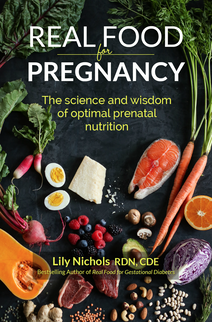 Prenatal nutrition is critical to establishing a strong foundation for overall pregnancy outcomes. Eating healthfully can impact risk factors for gestational diabetes, anemia, and other vitamin deficiencies. I received a copy of REAL FOOD for PREGNANCY during my most recent pregnancy. When I looked through this book I noticed that it recommended a diet similar to the one that I was already following after having bloodwork done and realizing I needed extra nutritional support. Now that baby is here, this book has resonated with me even more having experienced some complications during and after delivery. I am very glad that I worked on my diet and built up my iron stores. Had I not, postpartum would be very different than what it has been. REAL FOOD for PREGNANCY, written by registered dietician Lily Nichols, is a goldmine of nutritional information for pregnant people. She goes against the grain (no pun intended) of the traditional recommended diet for pregnancy and identifies nutritional deficits that are present in the current American prenatal diet; the requirements for vitamins B12, B6, iron and many others are missing based on the current food recommendations. Yes, one can take a prenatal vitamin to help meet these needs, but many prenatals are often lacking in good quality forms of nutrients. REAL FOOD also navigates postpartum and eating healthfully for breastfeeding and building up nutrient stores that are low after pregnancy. She even provides some of her favorite recipes to try which can be prepared with whole food ingredients and a few simple steps. She includes recipes for shepherd’s pie, bone broth, and even a few healthy desserts. This book is full of interesting information and I definitely learned some new info! For example, did you know taking a certain probiotic during the last weeks of pregnancy can boost immunoprotective compounds in human milk?? If you are pregnant, know someone who is, or work with pregnant people, I’d highly recommend this book! 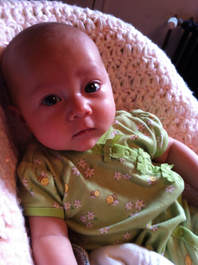 A sweet 3 month old Amelie. A sweet 3 month old Amelie. It only feels fair to share my 2nd born's breastfeeding story on the day of her birth also. Amelie was born in Belgium on 5/15 weighing in at 5# 15oz at 38 weeks. I felt so confident in breastfeeding since I had breastfed her sister for 2 years. I felt like a subject matter expert! And, in the hospital, everything went really well with feeding. I had no pain when she latched, no significant weight loss. She was ever so slightly jaundiced, but having 2 risk factors for jaundice (being part Asian and having a sibling who was jaundiced), I wasn’t surprised, and no one felt we needed any other interventions other than continuing to feed on her cues. She was a pooping machine. As a newborn, I remember she pooped at every feeding. She was also the complete opposite of her sister. She rarely cried. She would have periods of being awake and not screaming (whhhaaaattt?!) – I didn’t realize this was normal. I wore her from the very early days and she slept peacefully on my chest in between her feeds. She was so quiet and content and slept such nice long stretches I would have to remind myself that she needed to eat. She gained weight very well early on and if I recall correctly, by her 3rd week, she was well over 7 pounds. Things continued on very well for several months. Fast forward to her 9 month well baby appointment, the pediatrician told me that she hadn’t gained any weight in 3 months (since her 6 months check). How was this possible? I fed on cue, we co-slept, I wore her all the time so I could easily feed her when we were out and about. I had no idea what happened, but I was very upset. I know how important weight gain and proper calories are to developing infants. They wanted me to supplement with formula. I did not want to do that. She had not had one drop of formula in 9 months and I didn’t want to start then. So, I decided I would just feed her more and hopefully try to up my supply. I fed her every 2 hours (which is kind of a lot for a 9 month old). I wasn’t sure if my supply was going up or not. I just felt like that was what I could do. I also saw another provider and decided to start galactagogues. I got my prescription filled for that and taking that along with feeding more frequently, I did feel like my supply increased. I also reached out to a local breastfeeding support group leader who had me over to talk about what was going on. She observed a feeding and noticed that Amelie clicked a lot when she latched and fed. It was something that I had not even really noticed. She told me likely it was the suction breaking and that it was common with tongue tie. Again, whaatt?! I had never heard of tongue tie. When I left her house, I of course went home and did research on it. I did not have the typical symptoms – I had no pain when she fed, I never had any nipple damage. But then as I continued to do research, I also started noticing a few things that I hadn’t realized before. One, her latches were never painful, but never 100% comfortable. With my first, I would often fall asleep when I woke to feed her overnight. With Amelie, I could never fall back asleep while nursing her because it was slightly uncomfortable, but never painful. Also, my period came back really early to be exclusively breastfeeding – at 3 months. I was shocked. But in hindsight, I now realize that likely she was not draining my breast well and so it impacted the lactational amenorrhea method (LAM) of birth control. Also, the lack of her effectively draining my breast likely impacted my milk supply and explains why when I was still feeding her very regularly, that she was not gaining well. All of these symptoms I learned can be related back to poor milk transfer and tongue tie. I was living in Germany at the time and it was very difficult to find any providers who knew what tongue tie was let alone correct it, so I flew back to the US to New York and Dr. Kotlow, a well–experienced pediatric dentist and frenotomy provider diagnosed her with posterior tongue tie and upper lip tie. She had them both revised at 11.5 months old. I can’t believe that she had this and I had NO idea! Tongue tie can take on many different forms. What is one person’s story is not going to be the same for another person. And while I know there has been some recent controversy surrounding tongue tie by (in my opinion) an unknowledgeable pediatrician, I can only hope that every story that is shared regarding tongue tie and how it impacts families can strengthen the need for this procedure to continue to be available to breastfeeding families. Amelie and I went on to breastfeed for a long time after her procedure and we had a very happy, full-term breastfeeding relationship. <3  sweet Clara at her first Easter (about 10 days old) sweet Clara at her first Easter (about 10 days old) Happy Easter and Happy Birthday to my first born! I have been wanting to revive the blog for a while now and was inspired by Easter also being Clara’s birthday. Without her, I don’t know that I would’ve changed career fields to become a lactation consultant. During my pregnancy, I actually hadn’t thought much about breastfeeding at all. I did not take a breastfeeding class other than the session in my childbirth education series when we discussed breastfeeding. When people would ask if I planned to breastfeed, my response was always the same, “eh – I will try it and see how it goes”. I actually do not even remember the first time Clara latched. The birth experience was overwhelming and thinking back now 9 years ago, is a bit of a blur. What I do remember about our first breastfeeding experience is that it hurt. I had a doula at my birth who had 6 children and she had breastfed them all. She was helping me try to latch Clara in the hospital. We would get Clara latched and I would wince in pain. She would tell me that the latched looked good/right. I remember shaking my head and needing to break the latch. Eventually I had cracked, bleeding nipples. At times I did not want to latch her due to the pain but knew I needed to, so I did. We were discharged with an order to do at-home bilirubin treatment because she was jaundiced. The company where we were to pick up our bili blanket did not have any more blankets. We had to get a bili bed. I didn’t know the difference then, but now understand why the blanket is much preferred to the bed. The bed was hard and Clara had no desire to be on it. She screamed. All the time. She was turning more yellow by the day. We had to go daily to the hospital to get her heel pricked to check her bili levels. I think we did this for 3 days in a row until finally her levels were low enough we could stop going. I was worried she was starving in those first few days and that was why she screamed so much. I gave her formula from the samples that we got in the mail. I felt like after her bottle she maybe stopped screaming for about 20 minutes, so I was convinced she needed formula. I had no idea how much to give her so I am sure we overfed her. At some point, I started using a nipple shield – just for one side. She just seemed like she wouldn’t latch to this one side well without it, so I kept using it. Except our dog really liked them. So if I set it down somewhere after feeding, he would pick it up and eat it. I feel pretty confident we went through at least 8 of them. We found a whole garden of nipple shields in our backyard when using the pooper scooper. I also started pumping very early on (less than a week). I don’t remember getting much (anything?) until finally day 5, I started noticing milk when I pumped. And the pump? That contraption looked so foreign and unnatural to me. I had no idea that the milk didn’t flow through the tubing! But, oddly, I found some peace in pumping. It made me feel like I had some control over what felt like an out of control situation. The pumping also allowed me to have a few moments of semi-quiet and alone time as I would pump by myself in her nursery. I was amazed at how someone so small could scream so loud, but yet I had no idea how to help her stop crying. I felt helpless and overwhelmed by this whole parenting thing. Eventually, it seemed like Clara and I figured out breastfeeding. After the first couple weeks, it seems like things got a little easier, but still not easy. My nipples healed, she weaned from the nipple shield, I stopped using the formula. Around the 3 month mark is when I felt like I actually *enjoyed* breastfeeding and wanted to continue. But, it took a while to get there. We went on to breastfeed for just shy of 2 years. Had you asked me at week 1 how long I would breastfeed, I never would’ve thought that I would breastfeed her for 2 years. To all the families who have allowed me to be part of their breastfeeding journey, especially in those early days and weeks, thank you. I remember this as such an intense, vulnerable, special, and emotional time - and to allow me to be part of your breastfeeding and parenting journey is an honor and a privilege. Happy Birthday to my Clara Beara - thank you for changing my life forever <3. 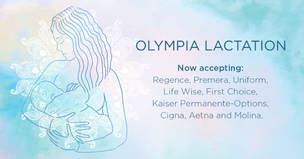 Olympia Lactation is expanding its services! We are excited to announce office visits will now be available. AND, the best part about these office visits is that we can accept most insurance! What this means is that the same care you receive in your home will be offered in a home-like office setting. These appointments will be up to 90 minutes in length, thorough, and you will leave with a plan to help meet your breastfeeding goals. Follow-up visits will be available so that we can continue to track your progress. These visits will be overseen by a physician so if there are any needs such as prescriptions, diagnoses, etc. those can be addressed too. The office is at Whole Health Naturopathy who has just relocated to 1212 4th Ave E in Olympia. Having this opportunity is something that I have dreamed of since starting in this role. I believe that this will increase access to lactation services which is something I feel strongly about and believe all families deserve. We will still continue to offer home visits and provide a superbill for your insurance to request reimbursement. Please contact us if you have any questions! It's summer time! Many people take trips or family vacations during this time. If you are traveling with a newborn or infant/toddler, here's a few tips that may be helpful. Having lived overseas for the entire time my children were little (under 3), we have flown and traveled a lot with them and I'm hoping I can pass on a few tips that may help:
Hope this info help a little! Don't let baby be the reason you stay home and miss out on summer adventures! What tips do you have for traveling with little ones? References: I am so excited to announce that Olympia Lactation will be offering a weekly breastfeeding support group! Some of my closest friends are those that I met who had babies similar in age to mine and who were also deep in the trenches of parenting. Weekly, we'd come together for coffee, chat, and to breastfeed. I have been wanting to offer this since moving to the area because I feel it's such an important piece of parenting - to have a safe place to go and feel supported OR to just have some adult conversations that didn't necessarily revolve around babies, breastfeeding or being tired.
These weekly groups are going to be kicked off during World Breastfeeding Week which is August 1-7, 2017. The first group will be on Wednesday, August 2 from 10-12 at 1026 State Ave NE (at New Day Midwifery). Facebook event is here. Light snacks will be available and of course a scale to weigh your baby. This first event is FREE! Subsequent events will be free to Olympia Lactation clients and just $5 for anyone else interested in attending (which can be credited towards a consult in the future). Coffee, tea, and small snack will always be offered. Hope to see you then! Here in the PNW, we have been catching glimpses of summer – with (finally!) warm temps and beautiful sunny days! With the warmer temps parents often wonder if baby needs extra water to stay hydrated. The short answer is no. Breastmilk will keep your baby hydrated. Breastmilk is 88% water! Breastmilk is designed to meet baby’s nutritional requirements for both hunger *AND* thirst. Sometimes babies want to feed, not because they are hungry, but because they are thirsty. Allowing baby unlimited access to feeds will ensure he or she is getting adequate amount of milk to quench his or her thirst.
Prior to 2 months of age, giving water to baby can put baby at risk for filling up on water (which is void of nutrients) instead of your nutrient dense breastmilk. It could cause baby to be less interested in feeding and negatively affect weight gain. If baby is even younger, less than 5 weeks, offering water can actually be dangerous by diluting sodium levels in baby which can lead to seizures or brain damage. If your baby is 6 months old and has started eating solid foods, sometimes parents will give a small amount of water to baby with solids. This amount should be minimal (2oz or less in 24 hours) and is more for practice drinking from a cup (it does not need to be in a bottle!). Or, even better, if you have expressed milk, you can put some of your milk in a cup for baby to drink. If baby is having slow weight gain, I would omit the water altogether and use expressed milk in a cup. Another option for providing a water source for baby which also has nutrients is to offer some fruit, again, if baby is at least 6 months old. Cold fruit is a great summer snack and most fruits are primarily water. Watermelon, strawberries, cantaloupe, peaches are all great choices! That said, again just keep in mind that water requirements for babies 6 months old and older can still predominantly be met with breastmilk :) References: http://www.stlouischildrens.org/articles/wellness/water-intoxication-in-infants http://kellymom.com/nutrition/starting-solids/baby-water/ http://www.livestrong.com/article/286730-list-of-foods-with-a-high-water-content/ 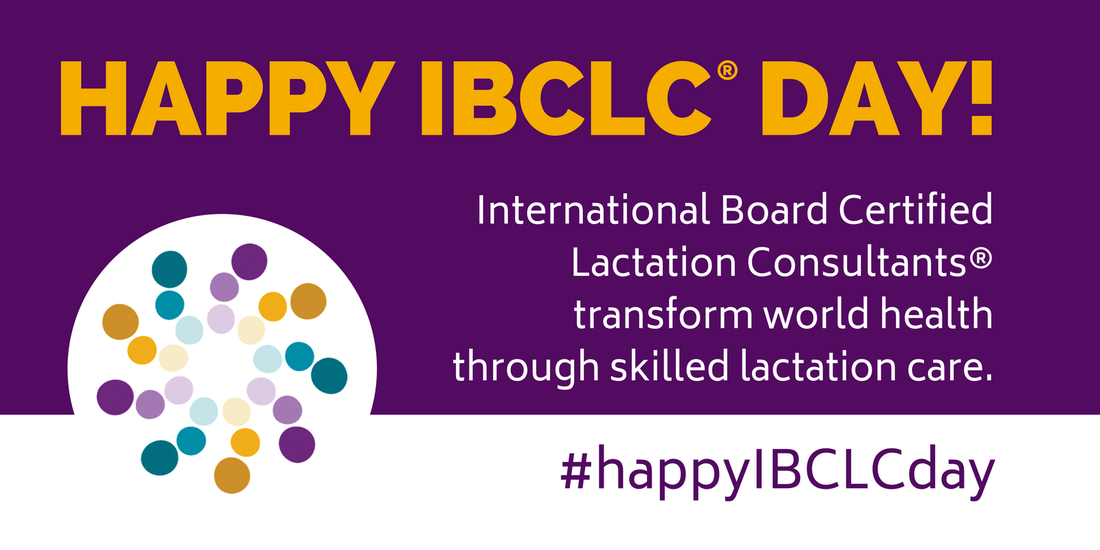 IBCLC is not a term that everyone is familiar with. So if you happened to see “Happy IBCLC Day!” somewhere on social media recently and thought to yourself: what the heck is that and why is it happy? I am here to explain. IBCLC is an acronym that stands for International Board Certified Lactation Consultant. It’s a credential that is awarded after years of clinical training, lactation education, and successful completion of a board exam. The cool thing about IBCLCs is that we are internationally recognized so that if someone is an IBCLC, it means regardless of the country we are in, we have all completed a required level of training, possess similar competencies, and have passed our board exam. There are IBCLC’s in 102 countries around the world! IBCLCs come from a variety of backgrounds. Many are nurses, many are not (myself included). I can’t speak for others, but for me, I became interested in becoming an IBCLC after having my own children. I struggled with breastfeeding with my first baby, and then again about 9 months in to nursing with my 2nd. Having overcome difficulties with both children, it motivated me to want to help other moms and families succeed in meeting their breastfeeding goals. For many of us, being an IBCLC is a second or possibly third career. I know IBCLCs who, in another life, were teachers, attorneys, stay-at-home-moms, chemists, psychologists. Others have reported being a massage therapist, carpenter, physician, marine biologist, administrative/executive assistant, mechanical engineer, and even a Russian linguist for the U.S. military! Such diverse backgrounds mean that each IBCLC will have his or her own unique style of supporting families. And yes, there are males that are lactation consultants – a question that comes up frequently. So, what is IBCLC day? IBCLC Day was developed by ILCA (International Lactation Consultant Association) to recognize the important role of the International Board Certified Lactation Consultant and the specialized knowledge each has to make a difference in the lives of breastfeeding families. If an IBCLC helped you with breastfeeding, please let that person know! Nothing warms our hearts more than hearing from someone we have helped! (except maybe chocolate) ;) References: http://iblce.org/about-iblce/history/ http://www.ilca.org/main/why-ibclc/ibclc-day  Last night, my entire neighborhood lost power for no apparent reason. No storm, no planned outage - it just flickered once and then went out in the middle of dinner. I talked to my kiddos about what it means when the power is out and what all is impacted (they are 4 and 7). Since we were eating, I explained that we couldn't heat up any more food in the microwave because it's run on power (don't judge - it was leftover night and we are fancy!). I also talked about how I didn't want them opening the refrigerator and just standing there - I don't really know anyone's child who does this, right?! Anyway, it got me thinking -- what if I were a breastfeeding mom and had milk stored in the refrigerator or freezer? Yikes! I thought I would outline a few basic guidelines regarding current breastmilk storage and what to do if you unexpectedly lose power. *Please note that these guidelines are for healthy, full-term babies. Freshly pumped milk - up to 8 hours. Typically, you will hear 4-6 hours, but up to 8 is considered safe, especially if the container is sealed and room is cool. Refrigerated milk - up to 7 days. Commonly you will hear to use within 3-5 days, but again up to about 7 days is acceptable. Frozen milk - up to 12 months in a deep freeze, and in a standard freezer up to 6 months. Always label your expressed milk with date and time so that you can use the oldest first. If your power goes out and you have pumped milk, minimize the opening of the refrigerator or freezer doors. If you have easy access to a cooler and ice, you can quickly load a cooler full of ice and place your milk in there. Of course, this requires you to open your refrigerator/freezer doors, so work as quickly as you can. Milk with ice packs in a cooler is good for about 24 hours. If it's cold outside, you can also grab your milk and place it outside. If it's well below freezing you may be able to keep the milk frozen. Or, if it's below 40, the outside temps would be similar to your refrigerator temp (ideal temp of a refrigerator is somewhere around 35). Once the power returns, check your frozen milk - if there are still ice crystals present, it hasn't completely thawed and can be refrozen. |
AuthorJust Carrie wanting a space to write about being a mom to 2, boob nerd, military wife, and food enthusiast. But mainly a place to talk about boobs and babies! Archives
March 2019
Categories |
|
LOCATION
Olympia Office (effective April 2024):
2627 Martin Way E, Olympia WA 98506 Pierce County: Appointments available in Steilacoom - see schedule page for details and availability! Providing lactation consults to families in Olympia, Lacey, Tumwater, Steilacoom, DuPont, Grays Harbor, Yelm, Rainier, and surrounding areas. |
|
We support equal rights and inclusion. LGBTQIA+ friendly.

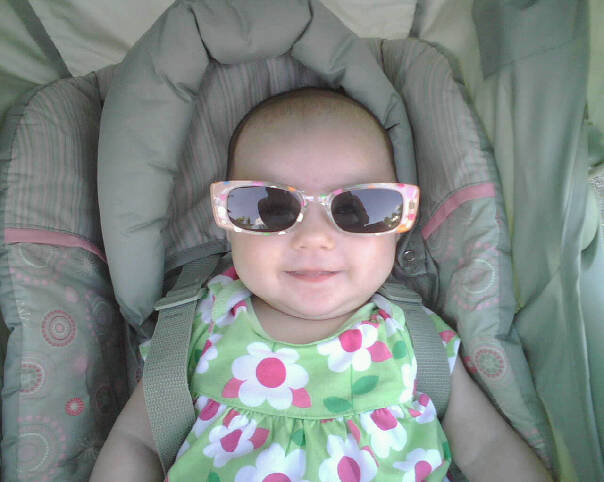
 RSS Feed
RSS Feed


